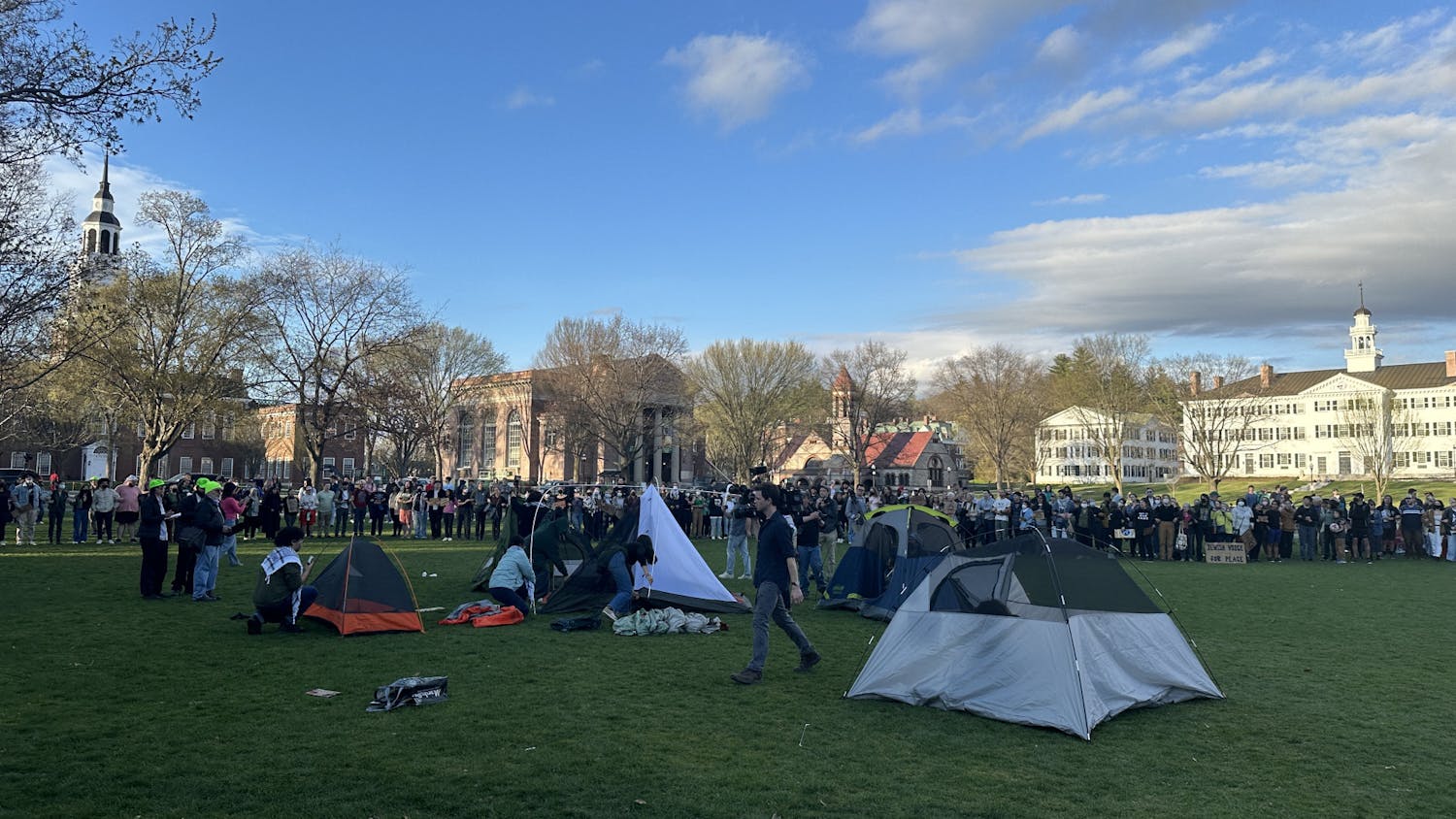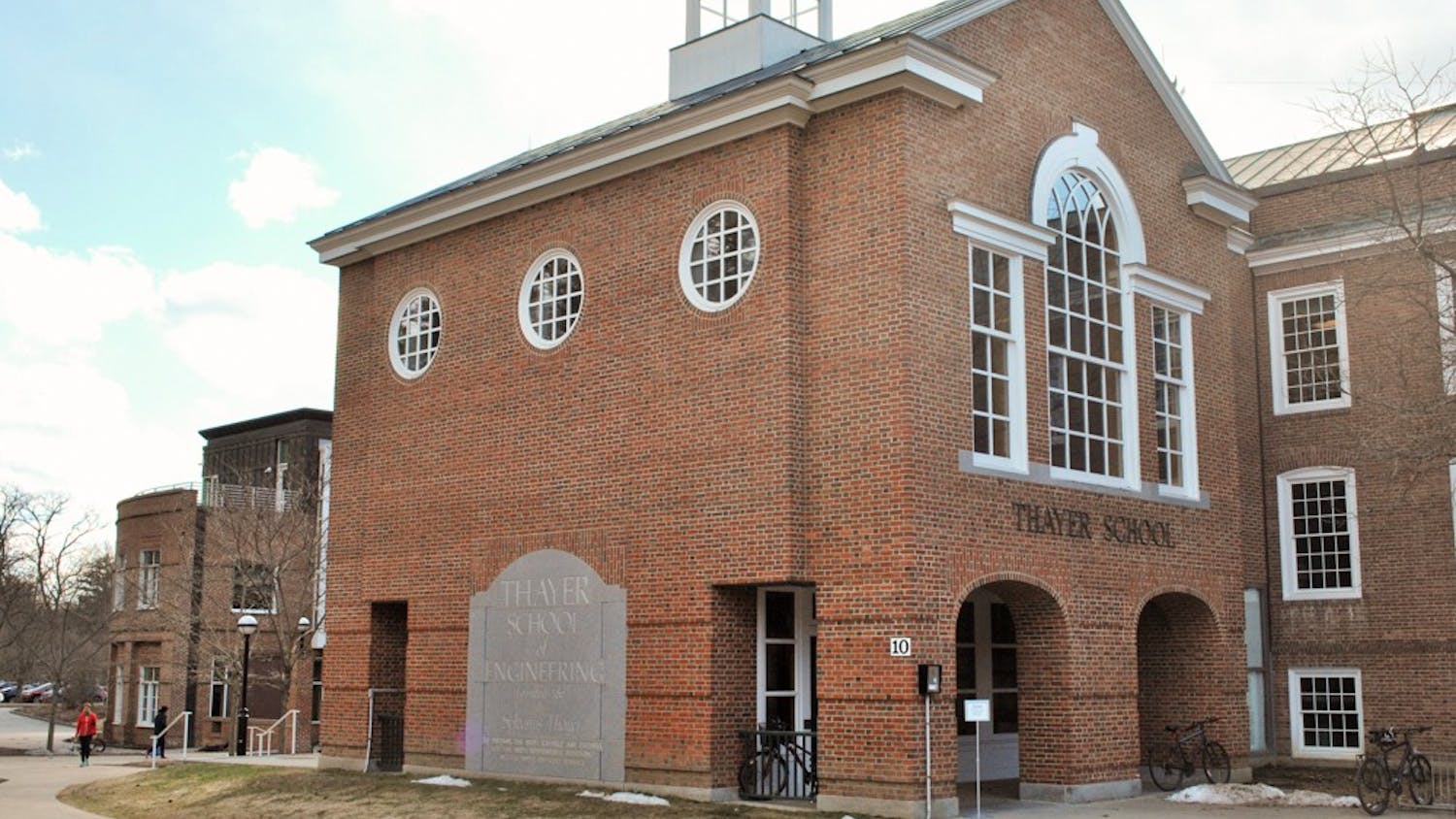The 21 members of the Class of 1999 who have signed up to found a new sorority held their first meeting last night, but declined to release any decisions.
The prospective members of the new sorority cannot request College recognition until the next academic year, since the College prevents freshmen from joining Greek organizations.
"Nothing's going to be official until the fall," Panhellenic Council President Jess Russo '97 said. But, she said, "they've [already] got the complete support from Panhell and all the other sororities."
Making decisions
Once fall arrives, the new sorority will have to make certain decisions and deal with College regulations before they receive official College recognition.
"Originally when we decided to start a new sorority, we had several goals in mind," Russo said.
"They have to decide whether they're going to be local or national," Russo said.
Either way, the new sorority will hopefully help reduce the size of pledge classes in the sorority system. Russo said a local sorority would help create more campus space that would be open to everyone.
If the group decides to affiliate with a national organization, according to Assistant Dean of Residential Life Deb Reinders, representatives from national sororities would visit the campus and meet with the group.
Dean of Residential Life Mary Turco said these representatives "would be interviewed [by Reinders and prospective members] and it would be determined whether or not any of them would be suitable for a chapter at Dartmouth College."
If the women find a national organization which does not presently exist at Dartmouth, Turco said, the members of the new sorority would then make a proposal "that a seventh organization affiliated with a national panhellenic organization be recognized by the College."
If the women decide to form a local sorority, they will have to write their own constitution, Russo said, which would have to be approved by the College.
Although Panhell and ORL were involved in the early planning and organizational stages, they do not have to be, Reinders said.
However, once the group begins the formal recognition process, they must meet with ORL to plan their future.
Obtaining recognition
Turco said the group would work with Reinders in preparing the proposal which would then be shared with Turco and Dean of the College Lee Pelton.
"We would discuss the pros and cons," Turco said. "And we'd have quite a few things to consider."
Factors in such a decision, Turco said, would include "whether or not recognition of the organization would be in the best interests of Dartmouth College and the students of Dartmouth College."
Turco and Pelton would also discuss whether the organization could meet the minimum standards of the College and "whether or not such a decision would make sense for the Coed Fraternity Sorority system in general," Turco said.
The response to the proposal, Turco said, could be an acceptance, a refusal or a request that the proposal be rewritten.
If the proposal is accepted, the sorority would not be immediately recognized as a permanent part of the College.
"We usually give one year of provisional recognition," Turco said. "During that year we would do periodic assessments of whether or not the organization was living up to its stated goals and our expectations."
"It would have a formal evaluation at the end of one year," Turco said, with the understanding that if the organization failed to meet the minimum standards and live up to expectations it would risk losing recognition.
If there were no problems, Turco said, "it would be deemed to be recognized in good standing and it would then have the privileges and advantages afforded to a recognized sororal organization."
Starting from scratch
The 21 prospective members of the new sorority are "completely just starting from scratch," Russo said. They face a different process from that of the 50 members of the Class of 1996 who joined the fledging Kappa Delta Epsilon sorority in 1993.
When Xi Kappa Chi sorority was going to dissolve due to low membership, the founding members of KDE absorbed Xi Kappa Chi's 14 members and took over the physical plant.
"KDE was different because KDE already was a recognized College organization," Reinders said, "because Xi Kappa Chi was a recognized College organization when they added the 48 members out of that '96 class."
Reinders said because the new organization was only the result of a name change, it was easier for the group to make the transition.
"KDE was an existing sororal organization which basically elected to dissolve its chapter and recolonize as a new organization," Turco said. They also had a year of provisional recognition after their formation, Turco said.
But Reinders said a new sorority can emerge in many different ways.
"A new sorority can come about in a number of ways," Reinders said. "A group of women on their own can come to a college" requesting recognition, Reinders said.
"The leaders of the Panhellenic organization for the past two years have decided that they would not petition for a seventh until all six of the existing organizations were deemed to be strong," Reinders said.
"However," Reinders said, "during the past year, the women have been concerned about other issues. They've taken a hard look at the rush process and been dissatisfied with different dimensions of it."
Reinders said the women "wanted to find solutions to dilemmas such as exclusivity and a selection process that required too much of an investment of time and energy" by students who were busy with other concerns as well.
Reinders said original solutions "tried to find ways to reform the rush process."
"But the reality is that gauging from the interest in the first year class, the women anticipate that they could now make some reforms in the rush process and additionally include a seventh organization by a different process," Reinders said.



